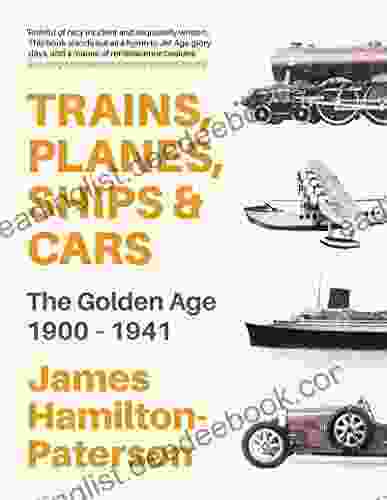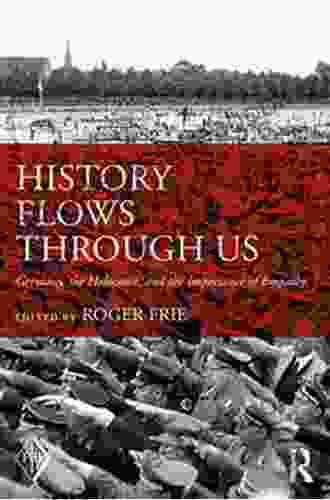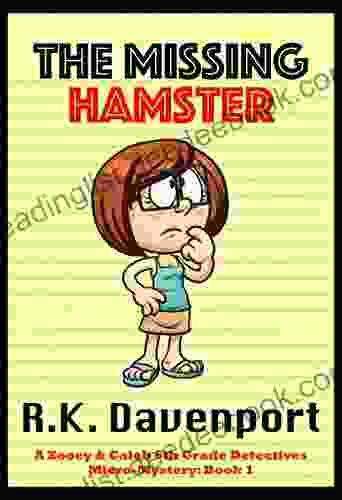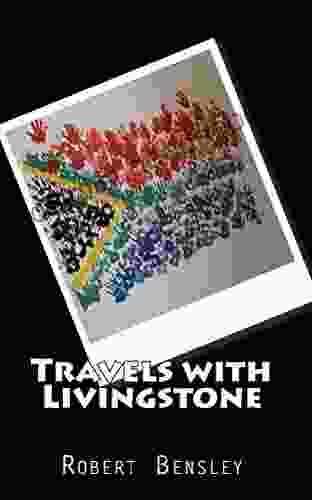History Flows Through Us

History is not just a collection of dates and events. It is a living, breathing thing that flows through us, shaping who we are and how we see the world. From the first humans to the present day, our history is a story of progress, innovation, and resilience. It is a story that is worth telling and retelling, for it is the story of us.
The First Humans
The first humans evolved in Africa around 2.8 million years ago. They were nomadic hunter-gatherers who lived in small bands. Over time, they spread to other parts of the world, adapting to different climates and environments. By 10,000 years ago, humans had settled on every continent except Antarctica.
5 out of 5
| Language | : | English |
| File size | : | 1076 KB |
| Text-to-Speech | : | Enabled |
| Enhanced typesetting | : | Enabled |
| Word Wise | : | Enabled |
| Print length | : | 206 pages |
| Screen Reader | : | Supported |
The early humans faced many challenges. They had to contend with predators, disease, and climate change. But they also developed tools and technologies that helped them to survive and thrive. They learned how to make fire, build shelter, and grow crops. They also developed languages and social structures that allowed them to cooperate and work together.
The Rise of Civilization
Around 5,000 years ago, the first civilizations began to emerge in Mesopotamia, Egypt, and India. These civilizations were based on agriculture and writing. They developed complex social structures, governments, and religions. They also made great advances in science, technology, and the arts.
The rise of civilization was a major turning point in human history. It led to the development of cities, writing, and other technologies that would shape the future of humanity.
The Middle Ages
The Middle Ages lasted from the fall of the Roman Empire in the 5th century to the Renaissance in the 15th century. It was a time of great change and upheaval. The Roman Empire collapsed, and Europe was divided into a number of small kingdoms and duchies. These kingdoms were often at war with each other, and the people lived in constant fear of violence and disease.
Despite the challenges, the Middle Ages was also a time of great progress. The Catholic Church played a major role in preserving knowledge and learning. Monks copied and preserved ancient texts, and they established schools and universities. The Middle Ages also saw the rise of the feudal system, which provided a degree of stability and order to society.
The Renaissance
The Renaissance was a period of great cultural and intellectual change that began in Italy in the 14th century. It was a time of renewed interest in classical learning and art. The Renaissance also saw the rise of humanism, a philosophy that emphasized the importance of the individual and the human experience.
The Renaissance had a profound impact on European culture. It led to the development of new forms of art, literature, and music. It also stimulated the growth of science and exploration. The Renaissance was a time of great change and upheaval, but it also laid the foundation for the modern world.
The Age of Exploration
The Age of Exploration began in the 15th century with the voyages of Christopher Columbus and Vasco da Gama. These voyages led to the discovery of the Americas and the establishment of European colonies around the world. The Age of Exploration was a time of great adventure and discovery, but it also had a dark side. The Europeans often exploited the indigenous peoples of the lands they colonized, and they introduced diseases that decimated their populations.
The Age of Exploration had a profound impact on the world. It led to the globalization of trade and culture. It also led to the rise of European imperialism, which would shape the world for centuries to come.
The Industrial Revolution
The Industrial Revolution began in Great Britain in the 18th century. It was a period of rapid technological change that led to the development of new machines and factories. The Industrial Revolution transformed the way people lived and worked. It led to the growth of cities and the decline of rural communities. It also led to the rise of the middle class and the working class.
The Industrial Revolution had a profound impact on the world. It led to the development of new technologies that would shape the future of humanity. It also led to the rise of capitalism, which would become the dominant economic system in the world.
The 20th Century
The 20th century was a time of great change and upheaval. It saw the rise of new technologies, the outbreak of two world wars, and the Cold War. It also saw the rise of the United States as a global superpower and the decline of European colonialism.
The 20th century was a time of great progress and innovation. It saw the development of the computer, the internet, and other technologies that have revolutionized the way we live and work. It also saw the rise of international organizations, such as the United Nations, which are working to promote peace and cooperation around the world.
The 21st Century
The 21st century is still in its early stages, but it is already clear that it will be a time of great change and challenge. The world is facing a number of pressing problems, such as climate change, poverty, and inequality. But the 21st century also offers great opportunities for progress and innovation. We have the knowledge and the technology to solve the problems we face. It is up to us to use them wisely.
History is not just a collection of dates and events. It is a living, breathing thing that flows through us, shaping who we are and how we see the world. It is a story that is worth telling and retelling, for it is the story of us.
5 out of 5
| Language | : | English |
| File size | : | 1076 KB |
| Text-to-Speech | : | Enabled |
| Enhanced typesetting | : | Enabled |
| Word Wise | : | Enabled |
| Print length | : | 206 pages |
| Screen Reader | : | Supported |
Do you want to contribute by writing guest posts on this blog?
Please contact us and send us a resume of previous articles that you have written.
 Book
Book Novel
Novel Chapter
Chapter Text
Text Story
Story Genre
Genre Library
Library E-book
E-book Newspaper
Newspaper Sentence
Sentence Bookmark
Bookmark Glossary
Glossary Bibliography
Bibliography Synopsis
Synopsis Codex
Codex Bestseller
Bestseller Library card
Library card Autobiography
Autobiography Reference
Reference Encyclopedia
Encyclopedia Narrator
Narrator Character
Character Resolution
Resolution Librarian
Librarian Catalog
Catalog Card Catalog
Card Catalog Archives
Archives Periodicals
Periodicals Scholarly
Scholarly Lending
Lending Reserve
Reserve Academic
Academic Journals
Journals Reading Room
Reading Room Rare Books
Rare Books Study Group
Study Group Dissertation
Dissertation Storytelling
Storytelling Book Club
Book Club Theory
Theory Angela Castillo
Angela Castillo Mitsuye Yamada
Mitsuye Yamada Emily M Parris
Emily M Parris Cosmopolitan
Cosmopolitan Andrea Wcislek
Andrea Wcislek Ejike Ifeanyichukwu
Ejike Ifeanyichukwu Jane Keathley
Jane Keathley Violette Paradis
Violette Paradis Harold Washington
Harold Washington 1st Edition Kindle Edition
1st Edition Kindle Edition Rebecca Mackinnon
Rebecca Mackinnon Debbi Coder
Debbi Coder Alan Weiss
Alan Weiss Michel Yves Schmitt
Michel Yves Schmitt Ella Quinn
Ella Quinn Maxine Morrey
Maxine Morrey A R Alexander
A R Alexander Michael P Steinberg
Michael P Steinberg Michael Woolson
Michael Woolson Kent Haruf
Kent Haruf
Light bulbAdvertise smarter! Our strategic ad space ensures maximum exposure. Reserve your spot today!
 Pete BlairFollow ·7.7k
Pete BlairFollow ·7.7k Clarence BrooksFollow ·15.9k
Clarence BrooksFollow ·15.9k Jack PowellFollow ·5.9k
Jack PowellFollow ·5.9k Mario BenedettiFollow ·19.8k
Mario BenedettiFollow ·19.8k Ronald SimmonsFollow ·10.7k
Ronald SimmonsFollow ·10.7k David BaldacciFollow ·9k
David BaldacciFollow ·9k Cruz SimmonsFollow ·7k
Cruz SimmonsFollow ·7k Jamal BlairFollow ·12.7k
Jamal BlairFollow ·12.7k

 Diego Blair
Diego BlairUnveiling Hidden Crete: A Comprehensive Review of Richard...
In the tapestry of travel literature,...

 Earl Williams
Earl WilliamsNew Addition Subtraction Games Flashcards For Ages Year
Looking for a fun...

 Julio Ramón Ribeyro
Julio Ramón RibeyroUnveiling the Nexus of Educational Politics and Social...
Education, a fundamental pillar of society,...

 Jordan Blair
Jordan BlairTrains, Planes, Ships, and Cars: The Evolution of...
Transportation...

 Derek Bell
Derek BellFalling for Rachel Stanislaki: An Unforgettable Literary...
Step into the...

 Harry Cook
Harry CookAn Introduction to Cardiac Surgery for Anesthesia...
Cardiac surgery is a specialized...
5 out of 5
| Language | : | English |
| File size | : | 1076 KB |
| Text-to-Speech | : | Enabled |
| Enhanced typesetting | : | Enabled |
| Word Wise | : | Enabled |
| Print length | : | 206 pages |
| Screen Reader | : | Supported |










